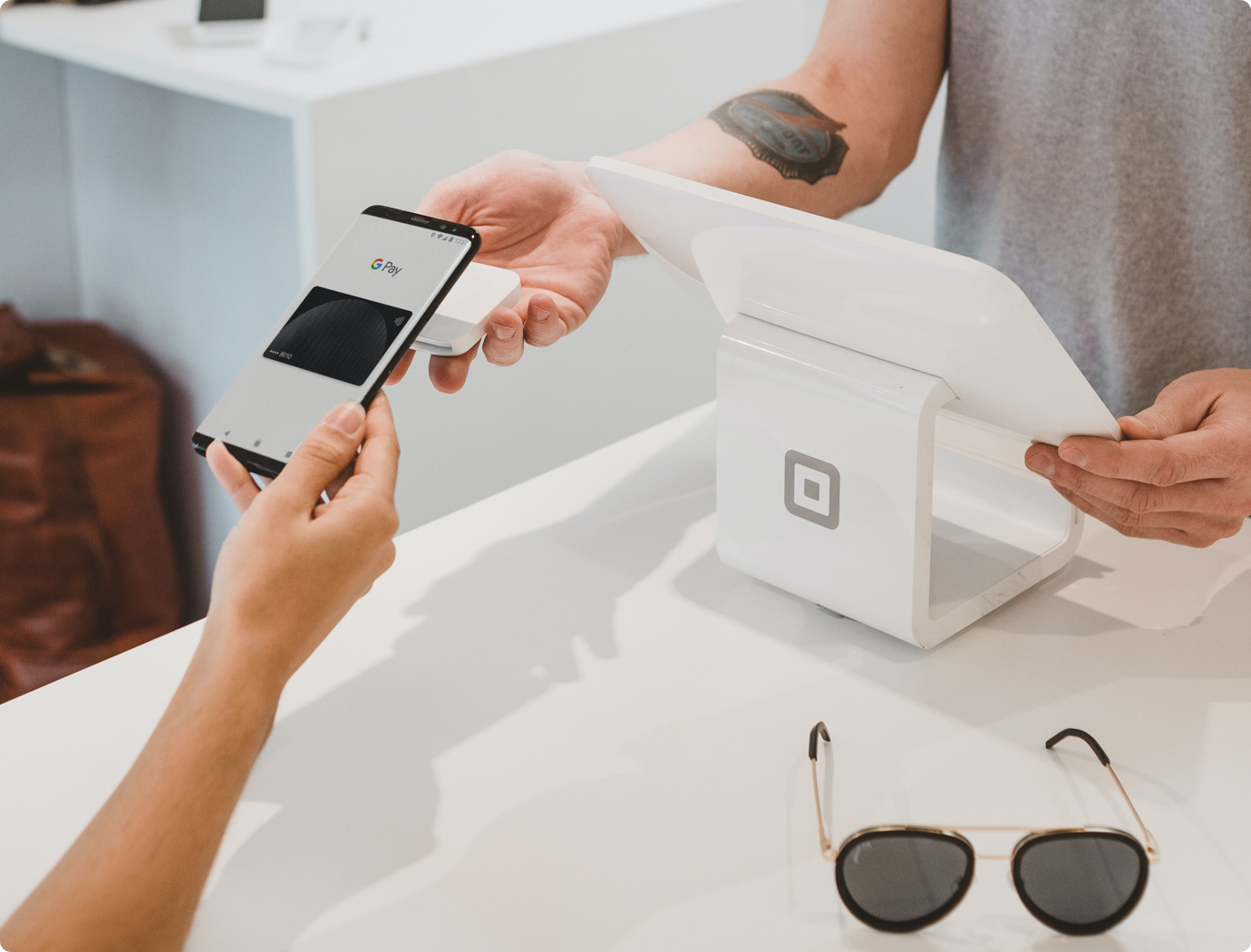SOLUTIONS
Industry Cases
Companies across the globe are leveraging blockchain solutions to modernize their supply chains. Smart contracts and trustless automation allow for streamlined compliance, auditability, and cooperation between multiple supply chain participants, while end consumers benefit from increased trust in product safety and origin.

EXAMPLES OF INDUSTRIES
Blockchain Across Supply Chain Sectors
Blockchain solutions are being adopted to improve supply chains across many industries and industry sectors, including the traceability and provenance of agricultural products
01
Logistics and procurement
About
Logistics and procurement is a complex industry that includes the purchase, transport, and orchestration of the movement of goods. The typical supply chain involves many different participants, including financial institutions (supply chain finance), supply chain management professionals, and service providers.
The advent of blockchain technology provides a unique opportunity to improve efficiency across all aspects of the supply chain. The ability to design a shared system where information can be trusted and shared securely between multiple participants allows for an alternative to siloed data systems where information is not easily transferred to other parties.
Blockchain is already being used by supply chain industry for
- Freight management with IoT devices
- Automation of compliance and paper processes
- Automation and integration with financial institutions, insurance, and more
- Blockchain integration with 3PL/4PL and big data analytics
02
Agriculture
About
Many consumers are not aware of the origin of the products they consume. As health food stores gain traction and demand for fresh, healthy products, blockchain promises a way to help consumers enjoy and understand the farm-to-table journey.
In addition to providing a superior experience to end consumers, blockchain facilitates supply chain management and can increase efficiency and visibility in the product life cycle. Farmers, packagers, logistics providers and retailers can all benefit from increased transparency and communications.
A few advantages of blockchain in agriculture include
- Increasing value of products by providing a superior customer experience
- Real-time supply chain audits and insights
- Increased efficiency with greater supply chain visibility
- Integration with IoT devices to ensure quality control, compliance, and minimized recall damage
03
Food and beverage
About
Companies in the food and beverage industry are always seeking ways to increase efficiency, reduce costs, and provide greater value to customers. As blockchain can provide an increase in supply chain efficiency while offering end consumers with trustworthy information about the provenance of the products they buy, many enterprises are turning to blockchain as a potential solution. Other benefits include:
- A way to communicate sustainable business practices with end consumers
- A transparent trail of events from farm to table
- Verifiable certifications by third party providers (i.e. GMO-free verified)
- Reduction in risk and scale of recalls and supply chain interruptions
04
Pharma and healthcare
Supply chain visibility and natural disasters
Supply chain visibility is the key to maintaining the supply/demand balance under changing market conditions. When a significant event such as a natural disaster occurs, supply chain systems may be interrupted, and it is essential to know where and under what circumstances the interruption occurred. With a shared infrastructure on blockchain, supply chain systems can communicate efficiently and securely while conveying important information about supply and demand across the entire supply chain.
Elimination of fake drugs and counterfeit equipment
Providing a way to prove the authenticity of prescription drugs and medications substantially reduces the risk of patients buying or receiving potentially dangerous substances. In many countries, the population does not trust the quality or authenticity of the drugs available on the market. Using blockchain-based signatures, companies can issue products marked with a tag that proves the origin of the product. When combined with analytics, alerts, and third-party verification, this offers a powerful solution to the problem of counterfeit substances.
05
Manufacturing and automotive
About
IoT devices are being adopted at a quick rate in the manufacturing and automotive sectors. This allows for a much higher degree of quality control data, intelligent systems and alerts, smart factories, and more. When manufactured components are passed along to an assembler, incorporated into a machine, or sold by retailers, maintaining the link from the component to the manufacturer and other supply chain participants allows for an event timeline for each manufactured component. Being able to understand the life cycle of a component allows for increased safety, accountability, efficient recalls, and performance data.
06
International trade and commodities
About
With over 30 trillion dollars of goods shipped internationally per year, international trade underpins the entire global economy. Any small increase in efficiency in international trade would equate to billions of dollars saved per year, and many companies are turning to blockchain as a way of automating procedures and cutting costs.
Some areas where blockchain is being applied are
- Automating Import/Export procedures and regulatory compliance
- Providing trustworthy tracking data on shipments of goods with blockchain-enabled IoT devices
- Improving logistics communication between participants
- Automating supply chain finance procedures and reducing settlement time
07
Luxury Brands
About
Blockchain is being used across many industries to validate the authenticity of products, track key events in the product life cycle, and improve trust between brands and consumers. The following industries are particularly well-suited to leverage blockchain to increase trust and value to consumers.
- Designer and luxury brands
- Watches, handbags, and clothing lines
- Jewelry
- Diamonds and gemstones
- Liquor & consumables with international consumption
- Any product with the possibility of counterfeit production
Blockchain solutions offer the healthcare and medical industry a way to securely store and transfer records, streamline and automate compliance and procedures, and more.

Securing Health Records with Blockchain
Healthcare records such as EMR (Electronic Medical Records) and EHR (Electronic Health Records) are often siloed in proprietary healthcare systems and are difficult to transfer to new health care providers. Healthcare providers lack a shared protocol for transferring data to other providers. In addition, patients are not in control of their data and often struggle to even access their own records.
Blockchain as a solution to healthcare record management
Blockchain-based systems provide a shared infrastructure where healthcare providers can adopt standard protocols for health records while benefiting from tools that streamline
- Permission to access data & records
- Record transfer requests
- Record transfer requests
-
Third-party access management
- Patient control and access to their own health data
Other Applications of Blockchain in Healthcare
Blockchain solutions are also being applied across the healthcare and life sciences fields in other ways, including some of the following use cases.
01
Validating data in health studies and trials
The health sciences currently suffer from a lack of trust in study and trial results, with low reproducibility in many sectors. Blockchain offers a transparent solution to gathering and processing data across studies, as well as incentivizing participation in studies.
02
Eliminating fraud and counterfeit healthcare products
Healthcare fraud, counterfeit equipment and prescription drugs, are often due to opaque procedures and a lack of accountability. By keeping supply chain records from manufacturer to patient, and implementing compliance measures secured by cryptographic signatures and the immutability of blockchain systems, accountability can be heightened and trust improved.
03
Interoperability
With proprietary, siloed systems, healthcare companies face a challenge when connecting up their systems to other healthcare institutions, insurance companies, and more. Blockchain provides a common infrastructure acting as a conduit for collaboration between organizations.
04
Automating compliance procedures
Healthcare companies often spend a significant amount of their resources on paper records and compliance. By automating compliance and organizational procedures with blockchain, healthcare companies may be able to cut costs and improve value to customers.
Enterprises in the energy and sustainability sectors are adopting blockchain solutions to automate and modernize their systems and processes.

EXAMPLES OF INDUSTRIES
Benefits of Blockchain in the Energy Sector
Blockchain offers unique advantages to the energy industry. Energy systems can be customized to provide a common infrastructure built on trust, with increased security and auditability.
01
Automation with smart contracts
About
Smart contracts are programs stored on a public or private blockchain that automatically execute when certain conditions or criteria are met. Smart contracts can be audited and executed without placing trust in a single participant, making them an efficient solution to systems where multiple parties are involved in sharing data or executing transactions.
Blockchain is already being used by the energy sector for
- Smart metering can enable automated billing for consumers and distributed generators
- Smart contracts simplify and speed up switching of energy suppliers
- Smart contracts can be used to automate tedious paper processes, providing real-time energy audits and meaningful energy consumption insights
02
Smart grids, microgrids and P2P micropayments
About
Blockchain allows for multiple parties to transact directly with each other, without relying on an intermediary. In the energy sector, this means that it is now possible to buy, sell, and trade energy between peers while maintaining an immutable record of events and transactions. When combined with smart contracts, it is possible to build a smart grid where energy is traded by participants and the connection with the main grid is mediated automatically.
In a blockchain-enabled smart grid, participants can produce, store, and trade excess energy with their neighbors. Micropayments for units of energy form the basis of accounting and can be settled whenever a participant wishes.
03
Energy exploration and crowdfunding
About
Just as the energy industry continues to find innovative approaches to sourcing new energy, blockchain provides unique advantages to creating investment opportunities and sourcing funds.
Advantages of using blockchain to crowdfund an energy project
- Sourcing funds for microgrids and local renewable energy projects, with perks for microgrid participants
- Fractional ownership of equipment (i.e. solar farm equipment) or a claim to revenue that can be traded with early liquidity on the blockchain
- Making investments in energy projects accessible to a broader and international audience
- Raising funds with innovative investment vehicles (i.e. tokenizing a share of revenue on a single energy product line)
04
Energy trading, sale, and bidding
About
There are multiple ways in which blockchain can be employed to facilitate energy the trading, sale, and bidding processes, including:
- Using smart contracts to automate the real-time settlement of trades
- Automating compliance requirements
- Maintaining immutable records
- Providing real-time trade and marketplace audits
- Tokenizing energy, carbon credits, and other securities
- Increasing liquidity and market efficiency with fractional ownership
05
Transportation and supply chain management
About
Blockchain’s unique ability to provide security, permissioning, governance, and automated smart contract processes allows for efficient and reliable supply chain systems that can be customized to meet the requirements of enterprises and supply chain participants.
Automation of supply chain systems with self-executing code can simplify and streamline compliance, improve supply chain visibility and predictability, and provide real-time insights into supply and demand.
06
Tokenization of energy, carbon credits, and more
About
Blockchain allows companies to tokenize securities and real-world assets, providing companies and investors with distinct advantages to traditional paper contracts.
- Tokenization of carbon credits allows for built-in compliance and automation, allowing energy companies to trade while saving time on paperwork and manual compliance procedures
- Increased liquidity from grid and microgrid energy pricing increases market efficiency
- Tokenization of equipment and facilities allows for investments in single product or service lines (i.e. investing in the future revenue of a single geothermal plant)
Players across the traditional financial industry are increasingly adopting blockchain solutions as a way of automating compliance, reconciling records in shared systems, and increasing efficiency. At the same time, financial technology companies are leveraging blockchain to build innovative and accessible financial products.

EXAMPLES OF INDUSTRIES
Benefits of Blockchain in the Financial Industry
The rise of cryptocurrencies and blockchain-based financial services highlights the demand for more efficient and accessible financial services. While alternative money ecosystems and DeFi (decentralized finance) gain traction, traditional finance is also recognizing the benefits of blockchain technology as a way to improve interoperability, streamline compliance, and improve user experience.
01
Clearing and settlement
About
As demand for faster settlement increases from institutions, trading firms, and consumers, blockchain offers a practical and reliable solution to accounting and automation of trades and money transfers.
Using blockchain to clear and settle transactions can
- Reduce settlement period from T+2 to T+0
- Reduce paperwork and compliance work with self-regulating systems and smart contracts
- Eliminate risk of error from manual reconciliation
- Allow for greater interoperability with other financial institutions and systems
02
Identity and compliance
About
Compliance in the financial sector is complex and relies on ensuring that customer identity is verifiable and that customers are authorized to trade a wide range of financial products and engage with certain services.
This creates the challenge of maintaining secure records of customer data, records of agreements and permissions, and frequently-changing financial status. Blockchain-based identity provides institutions and companies with a way of securing customer data, managing and querying customer permissions and KYC procedures in real-time, and automating compliance procedures.
03
Tokenization and securities
About
The tokenization of an asset is the issuing of a blockchain-based token that digitally represents the underlying asset. As this encompasses any asset type, blockchain-based tokens can be used to represent any type of financial security or physical asset.
Examples
- Equity in a company
- A share in a company’s revenue
- Debt and bonds
- Derivative contracts
- A share in the ownership of a racehorse
- Options and complex or custom financial instruments
- Diamonds and gems stored safely in a vault
After tokenizing assets, investors and traders can benefit from greater liquidity, transferability, fractional ownership, and increased access to novel types of investments.
04
Fundraising and crowdfunding
About
There is significant demand from retail investors for greater access to investment opportunities in early stage and high growth-potential companies.
With the maturation of the blockchain sector, legislative clarity, and a more robust infrastructure, there is growing interest in using security token offerings as a way of sourcing capital.
05
Microtransactions
About
Microtransactions are small payments, typically denominated in fractions of a dollar. With blockchain, currency units can be defined to a high degree of accuracy, allowing for micropayments between both humans and machines. Depending on the blockchain, microtransactions may be conducted on the blockchain itself or may be conducted via payment channels such as with the Bitcoin lightning network, where fees are near-zero.
Microtransactions allow for an entire new economy of financially-enabled products and services, as well as new business models and revenue streams for enterprises and startups. For example, microtransactions might allow for an attention economy within a social media platform, where a portion of advertising revenue is routed via microtransactions in real time to content creators that post popular content.
In addition to new business models, microtransactions allow machines to transact with other machines, enabling a future where IoT devices, humans, and autonomous organizations communicate and transact with each other.
06
DeFi and the Internet of Money
About
Decentralized finance involves financial infrastructure and products/services that do not rely on intermediaries or any one central actor. Blockchain, by its nature of facilitating trustless, peer-to-peer transactions and computation, allows for financial transactions to be executed without an intermediary like a bank or credit card company. The DeFi landscape is growing quickly and fintech companies are adopting DeFi technology as a way of gaining a competitive edge on settlement time, accessibility, low transaction costs, and innovative business models.
Advantages of DeFi
- Decentralized apps (Dapps)
- Transparency and auditability (i.e. for charities and nonprofit organizations)
- Censorship-resistant, P2P transactions, loans, and more
- Decentralized identity, credit scores, and preserved ownership of data
- Reducing the number of intermediaries and increasing efficiency
- Interoperability and open source infrastructure
- Banking the unbanked with BYOB (be your own bank) solutions
- Real-time, low-fee remittances
- The Internet of Money, web 3.0, and in-browser wallets